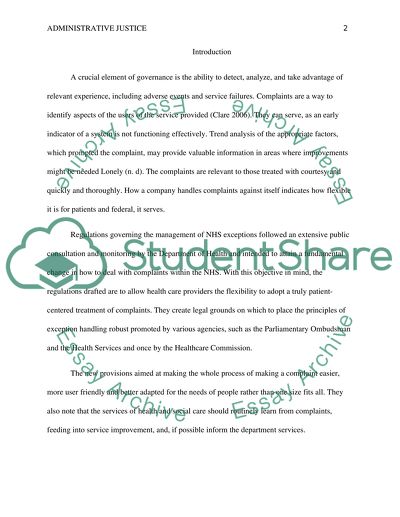Cite this document
(“Complaints and litigation Essay Example | Topics and Well Written Essays - 2750 words”, n.d.)
Retrieved from https://studentshare.org/law/1398253-administrative-justice
Retrieved from https://studentshare.org/law/1398253-administrative-justice
(Complaints and Litigation Essay Example | Topics and Well Written Essays - 2750 Words)
https://studentshare.org/law/1398253-administrative-justice.
https://studentshare.org/law/1398253-administrative-justice.
“Complaints and Litigation Essay Example | Topics and Well Written Essays - 2750 Words”, n.d. https://studentshare.org/law/1398253-administrative-justice.


